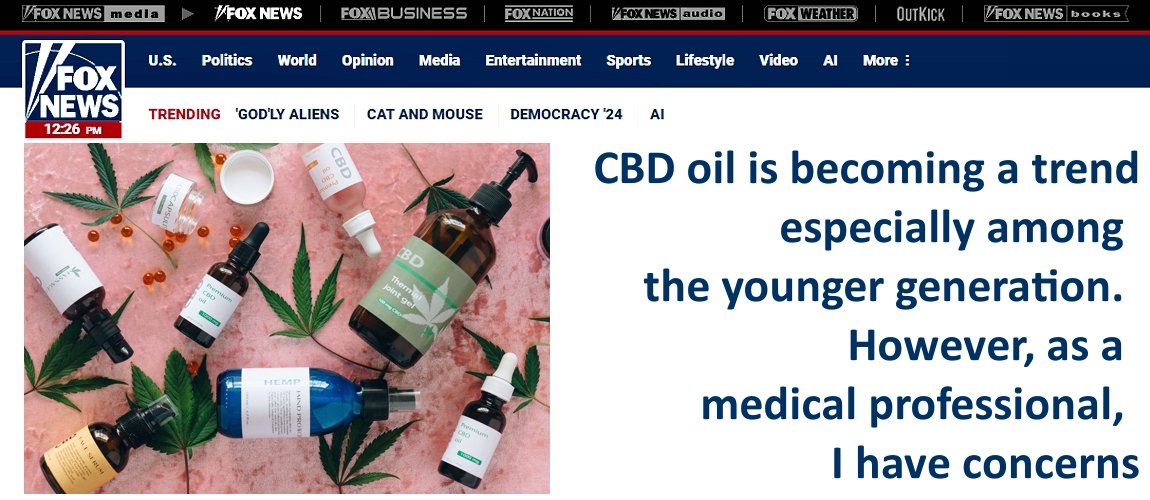CBD oil is becoming a trend, especially among the younger generation. However, as a medical professional, I have concerns

CBD oil is becoming a trend, especially among the younger generation. However, as a medical professional, I have concerns.
CBD oil, derived from the cannabis plant, is seeing a surge in popularity, not just among millennials but across all age groups, particularly in places with legal recreational marijuana.
Now, various outlets, from health food stores to pharmacies and even large supermarkets, are offering CBD-based products. Just recently, CVS revealed its plans to stock CBD-infused items in selected locations.
Marijuana is composed of both tetrahydrocannabinol (THC) and CBD, both having distinct impacts on the body.
THC is responsible for the euphoric “high” experienced after consuming marijuana. This is because, when THC is ingested, it undergoes metabolism and affects the body.
In contrast, CBD, extracted from either marijuana or hemp plants, does not produce this "high." This non-psychoactive compound can be consumed in various forms - orally, through inhalation, or topically. While it doesn't alter consciousness, it can have other profound effects on the body, and some studies indicate potential medical benefits.
Our body possesses two cannabinoid receptors, CB1 and CB2. THC predominantly binds to CB1 receptors in the brain, influencing mood, appetite, pain, and other functions. Earlier, CBD was believed to bind to CB2 receptors, but new findings suggest it doesn't bind directly; rather, it stimulates the body to utilize its cannabinoids.
While the FDA recognizes CBD's benefits in managing specific epileptic disorders, comprehensive research on its other health benefits remains lacking.
Many seek CBD as an anti-inflammatory solution. Preliminary studies on animals indeed showed a reduction in inflammation, offering hope for conditions like arthritis, acne, type 1 diabetes, and even Alzheimer's.
Emerging research even hints at CBD's potential anti-cancer properties, though it's still in nascent stages. Given the significant number of cancer diagnoses yearly, we cannot overlook any potential treatments.
Furthermore, initial studies indicate CBD might assist with mental health issues like anxiety, PTSD, and depression.
Despite these potential advantages, CBD's safety profile remains unclear. Although adults appear to tolerate CBD with minor side effects like fatigue and diarrhea, the long-term effects remain unknown, especially concerning children.
I'm particularly concerned that people may view CBD as a holistic solution, overlooking scientifically-proven treatments. It's essential to heed medical advice and view CBD as a supplementary treatment, administered under professional guidance.
We must recall how cigarettes were once prescribed for lung issues and the havoc wrought by opioids, initially considered less addictive.
While initial data on CBD looks promising, I remain reserved until comprehensive, long-term studies confirm its efficacy.
CanGetME marketplace daily collects the latest news from the world of cannabis from resources such as:
Euronews
The New York Times
Fox News
FOCUS Online
BILD
BBC
Fast delivery from 8.9 €
Highest quality standard
Secure payment SSL encryption
Fulfillment in EU warehouse & shipping
